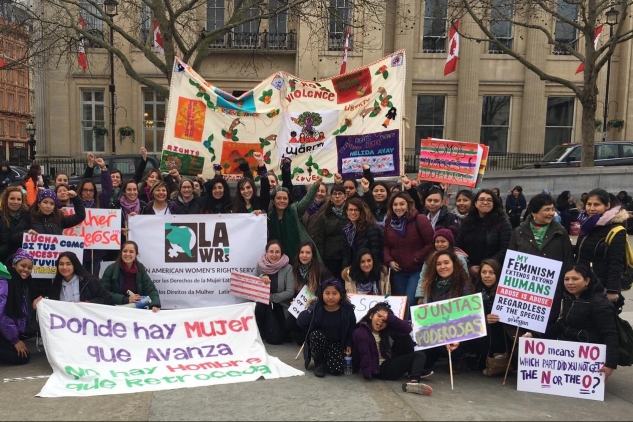
LEAG 5 Years: Fighting for the rights of migrant women workers
This month the Labour Exploitation Advisory Group (LEAG) celebrates its five-year anniversary. To commemorate, members have prepared a four-part blog series in which they share their experiences working with and for those affected by labour exploitation, and their views on what is still needed to address and prevent it.
In the closing blog, Gisela Valle, Director of the Latin American Women’s Rights Service (LAWRS), who chairs LEAG, reflects on the challenging political context in which the coalition has operated since its inception and its important work in raising awareness of the issues facing migrant women workers.
The Labour Exploitation Advisory Group (LEAG) celebrates its 5th anniversary in a trying context. The government continues to introduce new legislation which not only imposes increased restrictions on immigration and asylum, even affecting migrants who have lived and worked in the UK for decades, but which also muddies the waters by bringing trafficking and modern slavery into the discussion. Many small specialist organisations like the Latin American Women’s Rights Service (LAWRS) struggle to stay up to date with constant changes that affect the lives of our service users in very practical terms, as well as to fight for the rights of migrant working women in an impactful way with a government which refuses to listen to our voices.
In this context, making allies and building partnerships has been a successful strategy, which has allowed us to understand how migrants and workers are affected by hostile policies and deficient -and even damaging- support for victims, to learn about the struggles of other organisations and to fight together, amplifying our demands.
LEAG was established in 2015 with the aim of promoting discussion, sharing information and fostering collaboration among organisations working directly with people who have experienced or are at risk of labour exploitation in the UK. Member organisations identified that working on prevention of exploitation was as key as providing support for victims of modern slavery, as, when left unchecked, labour rights abuses can pave the way to exploitation. As a member during these 5 years, LAWRS has highlighted the experiences of Latin American migrant women workers, who are exposed to continuous violations of their employment rights, working mainly in sectors in which labour abuse and exploitation are endemic, such as cleaning, hospitality and domestic work.
However, as LEAG began its work, a decade of anti-immigration policies which would greatly impact the anti-trafficking sector was only taking its first steps. The “hostile environment” for irregular migrants in the UK was established as a government policy by Theresa May, then Home Secretary, from 2012 onwards. It ramped up previous damaging measures, affecting every aspect of all migrants’ lives, while also involving regular citizens in immigration control, such as turning landlords and employers into immigration officers, and going as far as criminalising the act of working itself without the appropriate documentation.
The policies of the hostile environment have increased the risks for all migrant workers, those documented and undocumented, in a myriad of ways, for which specialised support has become essential, at a time in which austerity policies not only reduced budgets for local authorities, NHS, education and the welfare system, but also reduced funding for organisations such as LEAG’s members, making the provision of that support and the necessary advocacy work more challenging than ever.
During this time, LEAG has had many accomplishments, which you can read about in the first blog celebrating its 5 year anniversary here. However, it is undeniable that we are navigating an increasingly complex environment for the sector.
LAWRS has been proud to chair LEAG since its inception as this group has been key in our policy, advocacy and campaigning efforts for the protection of the labour rights of migrant women workers. As part of LEAG we have been able to visibilise the intersectional discrimination that Latin American women experience on the basis of their race, gender and immigration status, to highlight how it increases their risk of labour exploitation, including trafficking, and how it curtails the avenues available to them for accessing protection and justice. LEAG has allowed us to connect and work with other organisations facing similar challenges and barriers, exchanging vital intelligence and providing the opportunity for joint coordinated strategies. It is evident that through initiatives like LEAG we have become stronger as individuals and as a sector. At a time when organisations are fighting for survival, and our beneficiaries are in more need of support than ever, working together as we have in the last 5 years is essential. We look forward to the work that the next stages of this coalition will bring, and the fights yet to win.
Read the previous blog of this series here.
